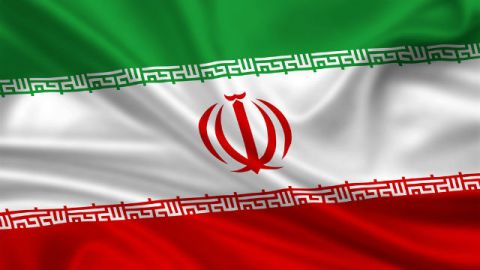The Language of War

‘Headline thinking’ — which last week I defined as the natural human tendency to “equate the actions of a certain person (or certain specific people) with the actions of a generic ‘label,’ such as the name of a country” — underlies the language of war. This is a timely matter to address, considering that certain members of the media, such as CNN’s Erin Burnett, have been airing stories with headlines such as “Is Iran Planning an Attack on America?” In addition, a recent Gallup poll with the headline “Americans Still Rate Iran Top U.S. Enemy” shows that 37% of 1,029 adults living in the U.S. feel that “Iran” is the “one country anywhere in the world” that is the “United States’ greatest enemy today.”
The Language of War
When I read the word “Iran” in a headline such as “Is Iran Planning an Attack on America?” feelings associated with the word are immediately and involuntarily conjured up in my mind. These feelings arise based on previous associations I have with the word and occur regardless of whether I have a clear understanding of what the word means in context. If I have a negative connotation of the word “Iran” I will experience a negative reaction such as fear, anger, or disgust. Much like a person who is afraid of spiders but cannot say exactly why, my immediate reaction to the word may not be grounded in any direct experience or memory, but nevertheless I will experience a visceral emotional response.
As I explored last week, upon close investigation the word “Iran” in the headline above has no clear meaning. However, since I do not often take the time and energy to analyze the meaning of everything I read, it is easy to skim over the word without realizing this. Furthermore, although the meaning of the word is not clear, the negative feeling it inspires is. In the absence of a clear meaning — and since this negative feeling arises with no effort on my part — it is natural for me to allow my feeling about the word to function as its meaning. In this case, the negative feeling I associate with the word “Iran” becomes concretized in my mind as the actual definition of the word.
At this point, since the negative feeling I associate with the word “Iran” actually refers to a generic label with no clear meaning, the feeling is free to spread out and contaminate anything else I associate with the word, including phrases and concepts such as “the Iranian people” and “Iranian food.”
This type of unspecific thinking — ‘headline thinking’ — leads directly to war, where a generic label such as “Iran” is considered to be the “enemy.” ‘Headline thinking’ causes me to equate the actions of a certain person (or certain specific people) with the actions of a generic ‘label’; in this case, once I categorize the generic label “Iran” as the enemy, it is reasonable for me to lump anything tainted with the ‘Iranian’ label — people, places, and things — into the same category. Everything I associate with the word “Iran” is now my enemy, and I am ready for war.
‘Headline thinking’ is akin to firing a shotgun into a crowd of people to kill a single person. It is more than dangerous; it reaps immeasurable harm to those who allow themselves to trust it and base their decisions upon it, and it destroys the lives of those who are blamed for the perceived actions of a generic label such as “Iran.”
Image Credit: Shutterstock.com





